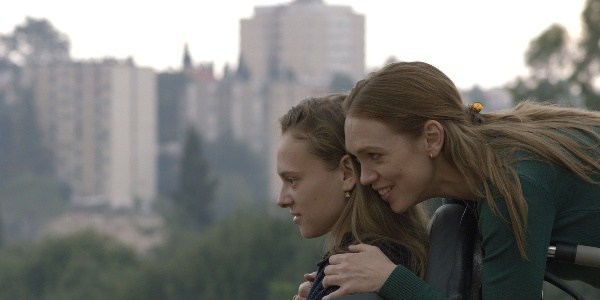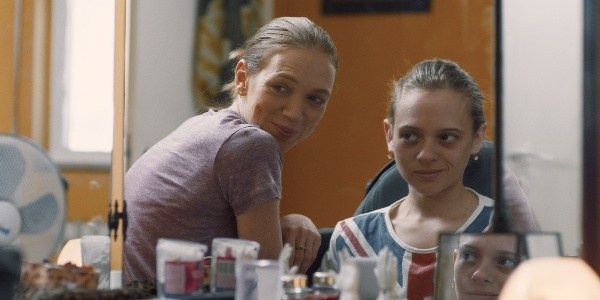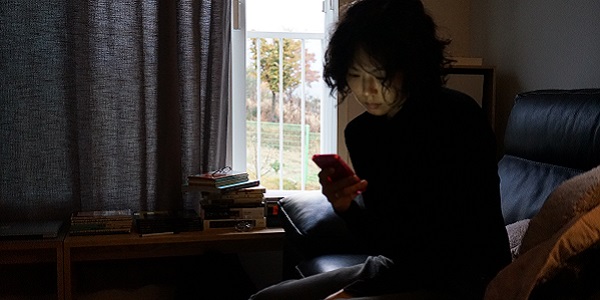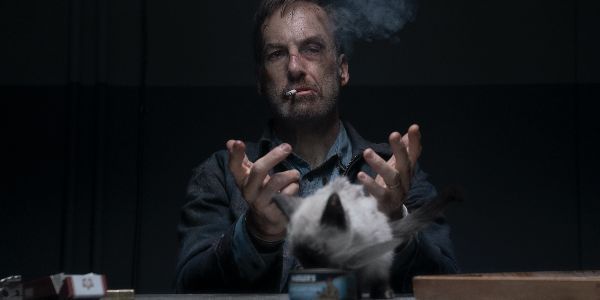Jewish International Film Festival 2021: Interview With Ruthy Pribar, Director & Writer Of ASIA
One of the major highlights of this year’s Jewish International Film Festival program – which is set to screen in select Australian cinemas from February 17 to March 24 – is Ruthy Pribar‘s heartbreaking feature debut Asia, whose appearance at the festival arrives at the tail-end of a smash-hit critical and commercial run in 2020, which saw the film scoring 3 awards during its online premiere at last year’s virtual Tribeca Film Festival, followed by 12 nominations at the Ophir Awards (the Israeli Academy Awards) and being selected as the Israeli entry for the Best International Feature Film at this year’s Oscar ceremony (where it unfortunately didn’t make the top 15).
Asia, the effective and emotionally devastating chronicle of a young single mother’s (Alena Yiv) reckoning with the fading health of her teenage daughter Vika (Shira Haas), bypasses maudlin cliches and domestic melodrama in favour of subdued, bittersweet moments that culminate in a despairing profile of motherhood that matches its depth of feeling with its visual ingenuity. Ahead of the film’s JIFF appearance, Film Inquiry had the pleasure to talk with Asia’s writer & director Ruthy Pribar, as we talked about the origins of her first feature, the importance of the soundtrack and the development of the film’s visual language.
Alex Lines for Film Inquiry: I read that you spent about 7 years building towards Asia, how did the story and characters change and develop throughout this time?
Ruthy Pribar: I have to say, it changed quite a bit. I knew right from the beginning that I wanted to tell a story about a mother and daughter and I knew that the daughter was going to be a teenager, but when it came to the mother, I wasn’t quite sure. At the beginning, I saw her like a more mature mother and it took me a while to understand that what I’m talking about, the story that I wanted to tell is about a woman that finds her motherhood.
Once I understood that she needs to be much younger, that the age difference between them needs to be smaller and that they would be a lot more like sisters than like mother and daughter for them to become as close as they get by the end of the film, it really changed the way that I perceived Asia’s character.
I wanted to investigate a thematic through-line I noticed between this film and two of your earlier shorts, The Caregiver and Last Calls, as they each represent loss and grief at different stages of time; Asia is in the anticipation of it, The Caregiver is in the realisation, and Last Calls is a melancholic reflection on it, do you feel this thematic recurrence is conscience in your approach and if so how do you feel you express this feeling in cinematic terms?
Ruthy Pribar: Yeah, it’s definitely something that I’m constantly thinking about working on within myself and the way I see myself departing from people that I love, which is something that we all need to deal with at one point or another in our lives. It’s a reoccurring thing and it comes from the way I experience life. I think in Asia, it’s a reflection of how I would like to be with the people that are close to me, the connection that I will be able to have with people.
I think that with Asia and Vika, they’ve reached this ultimate bond and this final act of love, that few people arrive at their lives to a point where they’re completely present in their lives and present within another person’s life. We spend a lot of time with people that we love and we never really get the chance to tell them how much we love them and how much we need them.

In Asia I wanted both the mother and the daughter to realize how important each other’s presence is in their lives while they’re still living and not after. With my earlier short films, it’s a bit different, definitely in Last Calls, it’s a reflection on the past, on how the lead character was unable to say goodbye to her sister, this is in a way, her chance to say goodbye to her, or to get to know her sister from a different point of view. With The Caregiver, it’s a film that deals with death, but not as its center point of view. It’s more about asking ‘How do we want to live?’
What I’ve come to realise in my films and in the way I write is how I want to live more than how I want to deal with what has passed, with what’s gone and can never be, can never return. I think this is where I’m going and hopefully with my next film, I’m going to follow that path and deepen it and understand better what life means for me or for the characters that I write.
How do you feel that your background in editing helped shape your directorial approach?
Ruthy Pribar: It’s not like it’s a background in editing – It’s part of who I still am now. I’m an editor and I’m also a director. The way I look at writing is very similar to the way I look at editing, only the materials are different. The materials, the writing, they come from life usually, or from people that you meet, from stories that you hear. When it comes to editing, the materials that you get are the materials through another person’s eyes, through the director’s thoughts. It’s very similar in a strange way, there are differences of course, but I think being an editor really helps in writing because you spend so much time trying to tell another person’s story and it makes you a better storyteller. When you’re a better storyteller, it makes it easier to write.
It’s very similar and very different at the same time, which is strange, because when I write, I have less chance to experiment than I would when I edit because when I’m editing, I have less walls that stop me. I can try things, and I’m not afraid to do that, while in writing, I sometimes withhold the person I am or the way I see things. I’m afraid to write something that I don’t really know about, but with editing, you have so much freedom. Sometimes I think if I could be as free as I am when editing, while I’m writing, it would really make a huge difference, I’ll get there someday.
Can you describe how you develop the films’ visual language with Daniella Nowitz?
Ruthy Pribar: Well, Daniella and I got to know each other while working on The Caregiver. We met through mutual friends and we really hit it off very early. Immediately when we met, we knew it was going to be great working together, and it turned out that it was, so we really do like the same references, the same films, the same art. We have a lot in common in that sense and the way we work is we read the script together – this is the major thing that we do – so you read the script together and we stop on every single scene, and we talk about it. We talk about what’s important, about what we think is the centre, what is the theme of the scene, and what will be possible to omit from the film because everything has this seed of truth in it.

And if it doesn’t, it’s not worth filming anyway. But when you find that seed, then you know how you’re going to shoot it. What you need to find is that seed, and you need to really work out what’s the most important thing that you want in the scene. This is what we did, and we did that for hours, just sitting and talking about the scenes. What we understood together is that this is a film, again, not about death, but about life and not about the ugliness, but about the beauty. These two characters, they live a difficult life and their circumstances are not easy, so what we try to do is not beautify that, but find beauty within it.
We didn’t try to make it non-realistic, but to see the beauty within the ugliness of life, which is always there. It’s like when you see a crack in the pavement and a plant grows out of it and it’s like, wow, this is beautiful and so organic. It’s life coming out of the cracks and this is what we’ve tried to do in the film, in every single scene.
The film is bookended by music, thumping party music at the start, anguished poetry at the end, how significant was the role of music within the film for you?
Ruthy Pribar: There’s a lot to talk about with the music because a lot of the music comes from within the scenes. There’s not a lot of score that was written for the film, but there were a lot of scenes that were written right from the beginning with music in mind, such as the songs Asia sings to her daughter, like the lullaby that she sings to her. There’s a lot of thought about the life that comes from the outside into their lives and how, as the film progresses, they go inwards, they get into their home and we hardly see Vika or Asia outside.
Asia’s in the hospital, but they are really confined to their house. The same goes for the music, as in the beginning, you would hear a lot of music from exterior sources but as the film progresses, the more emotional music comes from within the characters and not from their surroundings or their house or what they’re doing. So it’s not only the music, also the sound design, how everything becomes very, very small and tiny. Again, if you compare it to the beginning where there’s a lot of sounds coming from this environment. It’s just how the film progresses, and it’s the same for the visual language. It all comes down to these two characters staying in their home.
This past year or two, Asia has had monumental success in its festival and awards run, how was navigating the new and foreign territory of online film festivals?
Ruthy Pribar: I could never have never anticipated something like this, because no one could, and the film industry has gone through such an enormous change in the past year. When I thought about the film and how it would be accepted, I hoped that we would get into a good festival and a good start and then I would go off into places and meet people and having conversations about the film. What happened instead was that I remained at home with my two very small children, and during that, I’ve been having a lot of conversations like this one, and with people that watch the film or with just festival coordinators or whatever. With short films, you go to a festival, you meet people, you get to talk, you get to know how people felt about your work – I’m not even talking about sitting in the cinema and listening to the way people react to the film.
I don’t know if at some point people in certain countries would laugh or cry. I have no idea and this is something that is the first time for me obviously, and I hope it’s the last. I hope I’m not going to experience the film like that because I really missed it. I really want to see how the film touches people on a big screen, because I’m very happy that people are engaged with the film, even though it’s on their small laptops, but it was shot thinking about the big screen and the sound design is made for a movie theatre. In a way people have not experienced the film the way it was supposed to be experienced, but I’m happy that it’s gone out and has received such good reviews and that people love it.
How does the rest of 2021 look for you?
Ruthy Pribar: I’m working on a new project. There’s another feature film that is already written out and we’re now seeking funding for it, which is going to be shot in Israel. There’s another project that we’re working on that’s going to be shot in the US. There’s a lot of things, but you know, everything is open because there’s so much un-clarity as to what is going to happen. The good thing is that I didn’t have this huge festival ride where I go from festival to festival to festival, talking about the film. The good thing about it is that I have time to focus on a new project and on my new films and what I’m going to do next. And hopefully, it will be in theatres soon.
Film Inquiry thanks Ruthy Pribar for taking the time to talk with us.
The Jewish International Film Festival will be screening in select Australian cinemas from February 17 to March 24 2021, more information on the full program and session times can be found here.
Watch Asia
Does content like this matter to you?
Become a Member and support film journalism. Unlock access to all of Film Inquiry`s great articles. Join a community of like-minded readers who are passionate about cinema – get access to our private members Network, give back to independent filmmakers, and more.
Join now!





